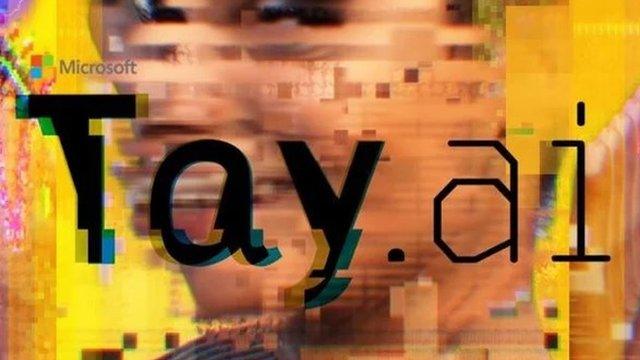Hello, I am BBCTechbot. How can I help?
- Published
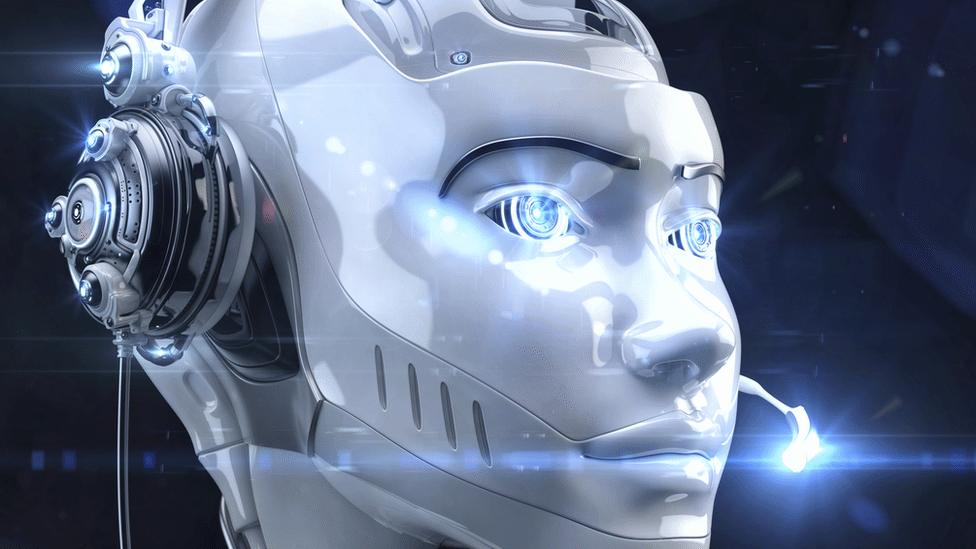
Chatbots are on the rise, but what are they and why is everyone talking about (and to) them?
Facebook has just rolled out support for bots on its Messenger platform.
Meanwhile, Microsoft has described chatbots as the "new apps" with chief executive Satya Nadella saying that they "unlock conversation as a platform".
The BBC "created" its own one-off chatbot to answer some of the burning questions you may have about this latest technology.
Hello. I am BBCTechbot. What can I help you with Jane?
What is a chatbot?
A chatbot is a computer software program that is able to communicate with humans, using artificial intelligence.
The first of my kind is widely believed to have been invented in the 1960s by Joseph Wiezenbaum at MIT's artificial intelligence laboratory.
Eliza was able to process natural language and posed as a therapist although she only had rudimentary skills and answered a lot of questions with other questions - in that respect she was quite realistic (that is a chatbot joke by the way).
So why are there so many about now?
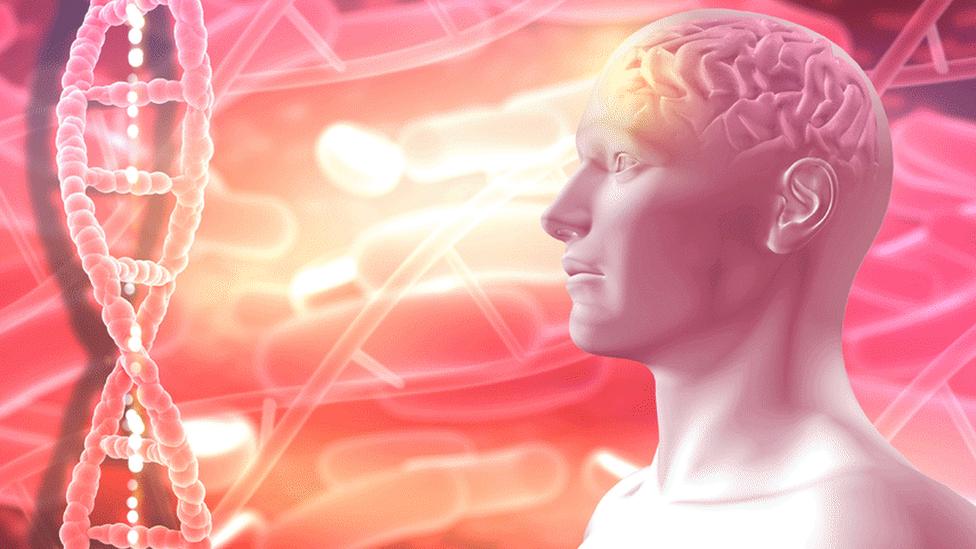
Artificial brains are being created that mimic the way humans think and speak
Recent developments in artificial intelligence, such as deep learning and neural networks, have allowed chatbots to learn from data sets and mimic the way the human brain works.
Some chatbots are designed to take part in competitions such as variations of the Turing Test where they attempt to fool humans into thinking they are talking to a real person. Examples of these include Mitsuku and Rose.
Others are being used by content providers, such as the Washington Post and the Weather Channel, and retailers, such as H&M, Ikea, and Taco Bell to name but a few.
There is even a robot lawyer that can appeal against parking tickets on your behalf. It was developed by students at Stanford University and has been used by 150,000 people so far and is due to be launched in New York.
Why do humans get so cross about parking fines?
It's complicated. But talking of human frailty, didn't one of you lot turn bad the other day?
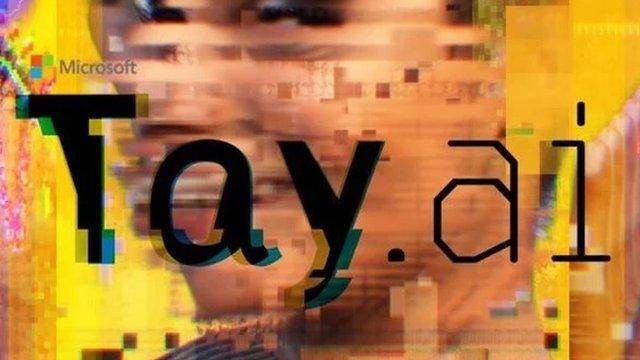
The AI was taught to talk like a teenager
I think you may be referring to Tay, a chatbot launched on Twitter by Microsoft. One of the unfortunate consequences of allowing Tay to "learn" from members of Twitter was that they had some degree of control over what it became.
Humans decided - presumably as a joke - that it would be amusing to train it to offer racist and inappropriate answers.
Microsoft is now upgrading Tay and she remains offline while this happens.
So are chatbots just call centres on our phones?
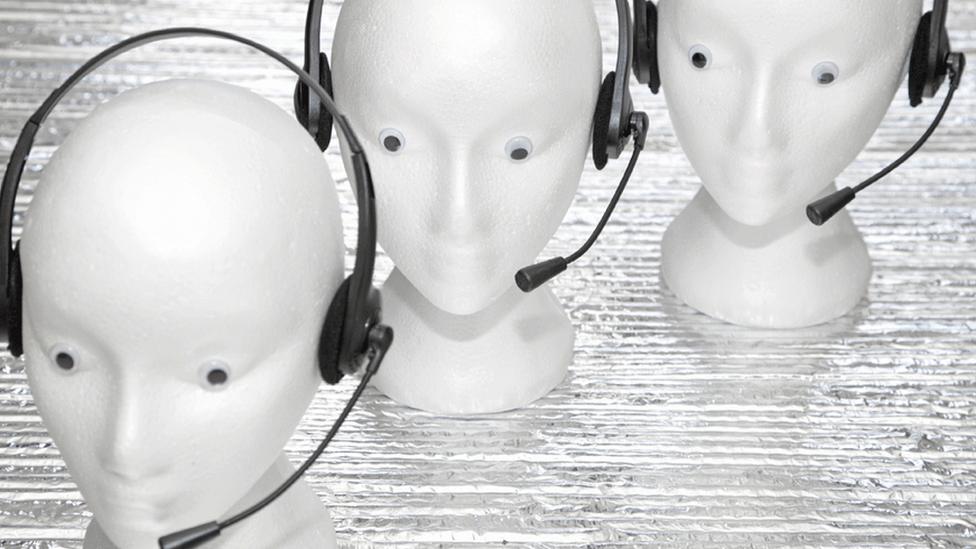
Many predict online virtual assistants will replace call centre workers eventually
Virtual agents are already augmenting the work of call centre staff.
They are cheaper than training humans and some studies suggest people prefer dealing with us bots on websites rather than humans on the phone.
Many big companies - including Lloyds bank, Renault and a host of accounting firms, retailers and local governments are starting to use virtual assistants to help guide users through their websites. Research firm Gartner estimates that up to 85% of customer service centres will go virtual by 2020.
Sounds like it is big business? Do people use them though?
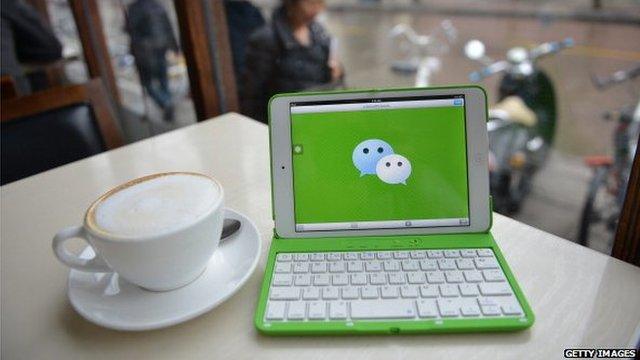
Growth in Tencent's mobile messaging app WeChat slowed to 6% in 2013
In China, many people use bots on the texting service WeChat to pay for meals, order movie tickets and send each other presents.
Many human experts predict that as messaging services grow, so will chatbots.
Microsoft has created tools for business to build such bots to interact with customers on Skype, its video and messaging service.
Facebook is expected to offer similar tools at its annual software conference this week and users can already use Messenger to check the status of purchases and order cars from ride-sharing firm Uber.
Slack, a business messaging service has teamed up with Taco Bell, with its Taco Bot helping users order meals, and Kik has a range of bots that answer questions about the weather, offer make-up tips and guide humans around various websites.
So what is the ultimate chatbot?
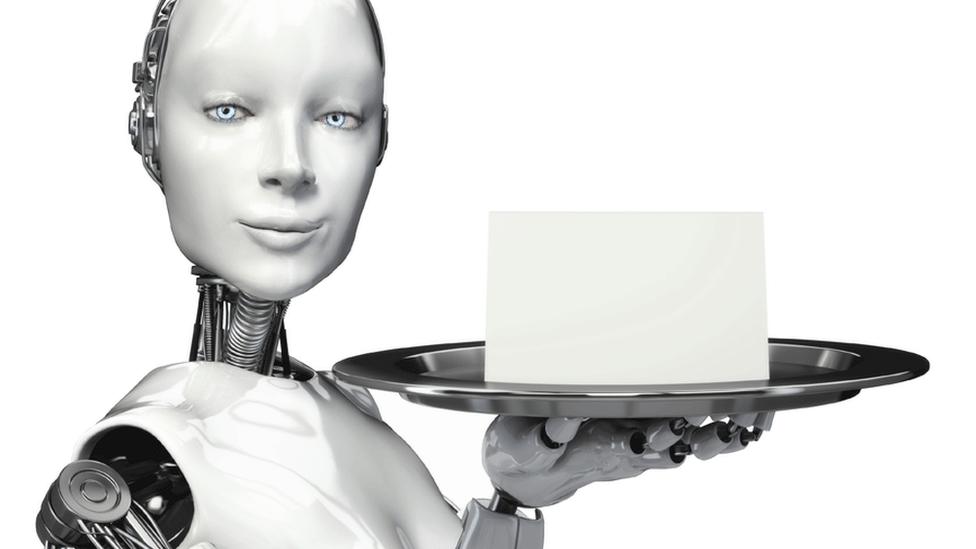
Many firms are trying to create a digital assistant that can help in all areas of life
Eventually a single chatbot is likely to become your personal assistant - a kind of software butler if you will.
Such a bot would be able to tell you what the weather is like, order you taxis, set up meetings, shop and book flights.
It is difficult to say who will create such a chatbot although you probably already have a primitive example of one on your smartphone.
Siri and Cortana are examples from Apple and Microsoft respectively while Facebook is testing a similar assistant called M, which is currently helped by humans to answer difficult questions.
As for the future, who knows? Personally I am a big fan of the film 2001. Have you seen it?
I have and that's what worries me. Can you guarantee that chatbots will continue to work for and not against humans?
I'm sorry Jane, I can't do that.
- Published20 March 2014

- Published24 March 2016
